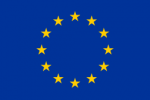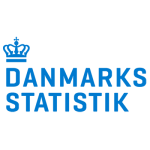Follow how the NeEDS participants tackle current data challenges in the fight against COVID-19:
Geographica, now known as Carto, is creating initiatives to help organizations working on Covid-19 research and developing projects to help governments and organizations to monitor and understand the spread of COVID-19 and its impacts in the society through technology. For example, they are using spatial data through mobile & web applications like AsistenciaCovid19 to beat the Coronavirus faster. The official self diagnosis and COVID-19 information app launched by the community of Madrid has been made available by the Spanish Government in five additional communities of Spain: Asturias, Canarias, Cantabria, Castilla-La Mancha, and Extremadura.
As one of only two Spanish firms selected by the EU, Carto has been granted €1.84 Mio for a project on Covid-19, working on a data platform that democratizes access to information related to the pandemic. You can read more on availability of data as well as studies concerned with the impact of the Covid-19 pandemic on Carto’s blog, or have a look at the open data on Covid-19 in their data library.
Héctor García, Founder of Geographica, also spoke at the online conference on how AI and Big Data can help in the COVID-19 crisis, April 9th, 2020 (in Spanish).
Danmark Statistik is using location data when fighting Covid-19 without infringing on privacy.

Statistics Netherlands is keeping everyone updated on the social impacts of COVID-19 with interesting statistics on employment, crime development, home offices and many more.
Jonas Klingwort, previous NeEDS Secondee and Statistical Researcher at Statistics Netherlands, has recently published a paper on Digital Epidemiology and Covid-19 Apps.
The Mathematical Institute at Universidad de Sevilla (IMUS) is studying the early detection of the most severe COVID-19 cases and aims to work on mathematical models that can help predict the evolution of the disease and its impact on health resources (in Spanish).
Emilio Carrizosa from Universidad de Sevilla talks about the critical quality of the available COVID-19 data on Spanish News Channel Canal Sur (in Spanish).
Our NeEDS secondees Cristina Molero del Río, Sandra Benítez-Peña and Remedios Sillero Denamiel are currently contributing to a research group that is particularly focused on the seven-days-ahead prediction of the number of hospitalized patients as well as ICU patients in Andalusia. Together with their colleagues at IMUS, they have recently published a manuscript on “Short-Term Predictions of the Evolution of COVID-19 in Andalusia. An Ensemble Method”. You can find more information here:
-
- Find the Article on ResearchGate.
- Watch the presentation of their results in the recent online event of Matemáticas de la COVID (in Spanish, Min 33:24).
- Check out the announcement of the MSCA Fellows of the Week due to their succesful work.
- Read an article on their work in USE’s newsletter BINUS (in Spanish).
- Check out an introdcutory video clip of their work here.
- Project Coordinator, Dolores Romero Morales, has also given an insightful interview to CBS’ news magazine CBS WIRE on how our NeEDS members are contributing to building a ‘predictor’ to foresee health-related effects of Covid-19.
![]()
Together with NeEDS researchers across the consortium, CBS has hosted an online Workshop on Data and Decisions in COVID19 times, July 1st 2020. You can find the recordings on our Youtube channel.
![]()

Tesco has promptly and succesfully adapted to the new demands forced onto retailers thanks to their remote working tools and supply systems readied for an emergency. Read more about it in The Guardian.




